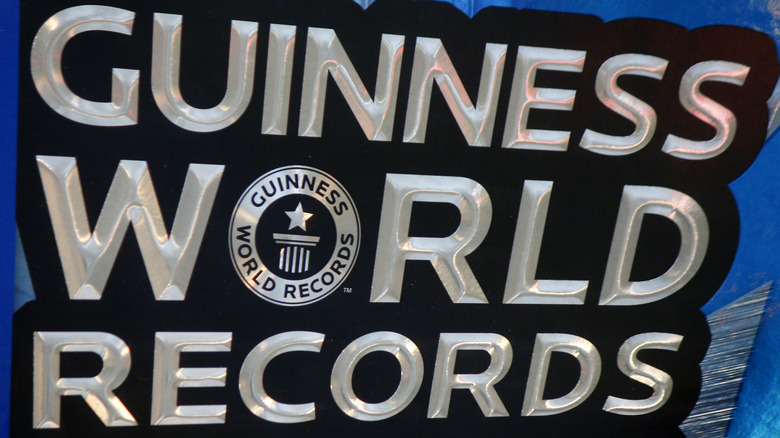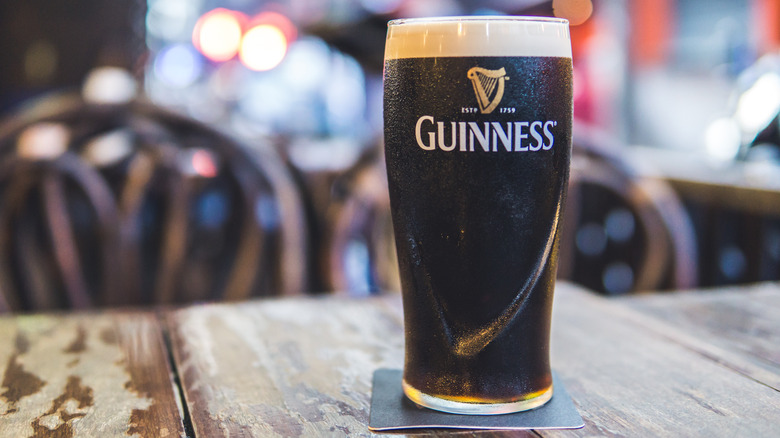Why Did The Guinness Book Of World Records Begin?
Quick: name the tallest man to have ever lived, without looking it up on Google. If you said Robert Wadlow, the Illinois man who reached a staggering 8 feet, 11 inches tall, it's a fairly good bet you gleaned that information, in one way or another, from the Guinness Book of World Records. For 70 years, according to History, anyone needing a quick and reliable record of this superlative or that superlative — the smallest organism, the deepest part of the ocean, the richest person to ever live — could simply grab a copy of the book, find what they need, and be ever-so-slightly smarter.
But why? What compelled a team of researchers, writers, and editors to compile a list of superlatives and then put them down in book form? And what is the connection between a reference book and a centuries-old Irish brewery? Because yes, the book and the brewery are part of the same company.
For centuries, the people of England and Ireland have enjoyed a periodic Guinness at the bar. For an equally long time, barflies have enjoyed making lively conversation with one another, as History notes. And from time to time, that conversation can sometimes turn into disputes.
Settling bar bets
Back in 1951, according to Vine Pair, the managing director of Guinness Breweries at the time, Sir Hugh Beaver, had the idea to compile a list of superlatives into a reference book as a quick-and-easy method of putting bar disputes — at least, bar disputes about this sort of minutiae — to rest.
Beaver, it should be noted, came up with the idea not from a bar fight, but from a problem he was wrestling over in his head: he was curious about the fastest game bird in Europe (which, by the way, is the golden plover, according to Today In Conservation). The question, History reported, came up originally during a hunting trip when he missed his shot at a golden plover. He debated with friends which game bird was the fastest in Europe. No one knew for sure and Beaver couldn't find any book that answered the query.
Beaver then hired two brothers who happened to be twin geniuses who already owned a business that provided factual information to London newspapers, per Today in Conservation. Those brothers contacted academics in just about every discipline to get authoritative responses for the book. The first edition of what was called "The Guinness Book of Records" (today called "Guinness World Records") was published in fall of 1955 and sold 100,000 copies by the end of the year. The rest, as they say, is history.

